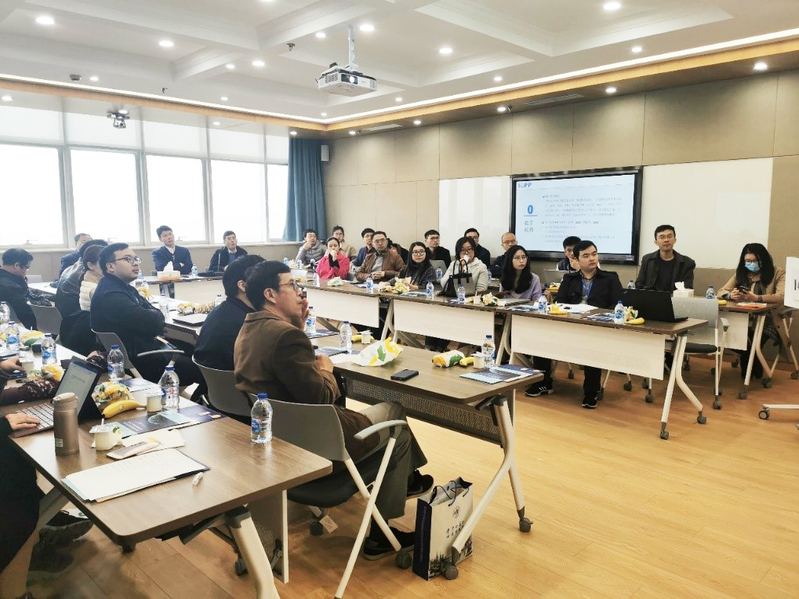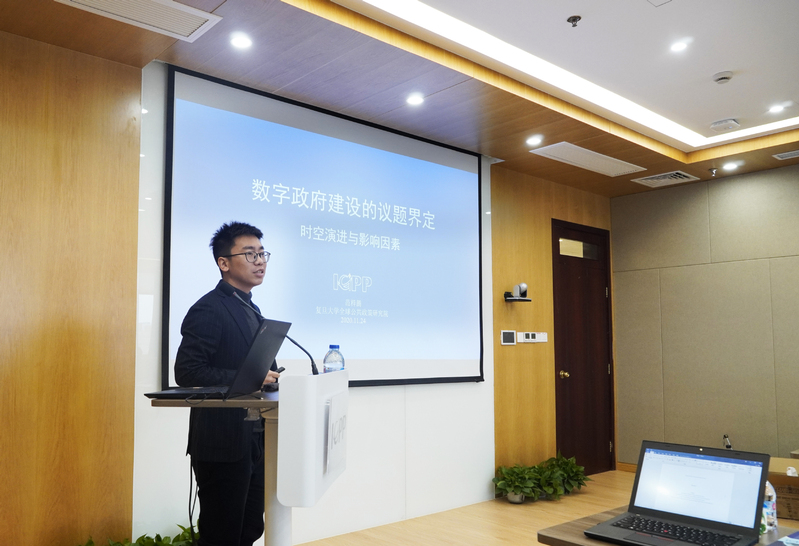Events



On Nov 24th, 2020, the first Yong Scholar Workshop in the Institute for Global Public Policy (IGPP) of Fudan University, was held in Room805E, Guanghua Tower. The Young Scholars Workshop aims to provide an opportunity for young scholars to share academic resources and present their research achievements, to build a platform for mutual enlightenment and innovation, and to promote academic communication and enhance the research ability of young scholars. The speaker was Dr. Ziteng Fan, a young faculty member of IGPP, and this presentation was chaired by Dean Yijia Jing.

The paper shared by Dr. Fan is entitled Issue Definition of Digital Government: Spatial Distribution, Longitudinal Dynamics and Influencing Factors . Dr. Fan gave a detailed introduction on the policy background, issue formulation, literature review, theory construction, spatial-temporal change, influencing factors and conclusion of digital government construction in China. Dr. Fan divided the development of China's digital government into four stages characterized by information infrastructure, government websites, mobile government, and smart government. He made a longitudinal comparison combining with cases, concepts, information flow, key terms, and agencies. The main research questions including how provincial governments define digital government in their official discourse; what characterize the patterns of issue definition of digital government at the provincial levels; and how does the patterns of issue definition of digital government change across provincial governments? Building upon previous literature, Dr. Fan pointed out the neglected cognitive perspectivein the digital government research, and built a theoretical framework to explain the differences in the issue definition of digital government across provinces. This framework contains both external environments and individual characteristics. The empirical findings found that, first, economic development dimension and government construction dimensionconstituted the dominant issues in the definition of digital government in Chinese provincial governments. Second, this study also found that provincial governments’ issue definition of digital government gradually shifted from the single focus on government construction dimension and moved toward a more “comprehensive” pattern. Meanwhile, the issue definition of digital government at the provincial level is a strategic response to the external environments, rather than a path-dependent choice based on their own existing cognitive framework and knowledge base. After the presentation, Dr. Fan had a Q&A with the audiences and participants.
